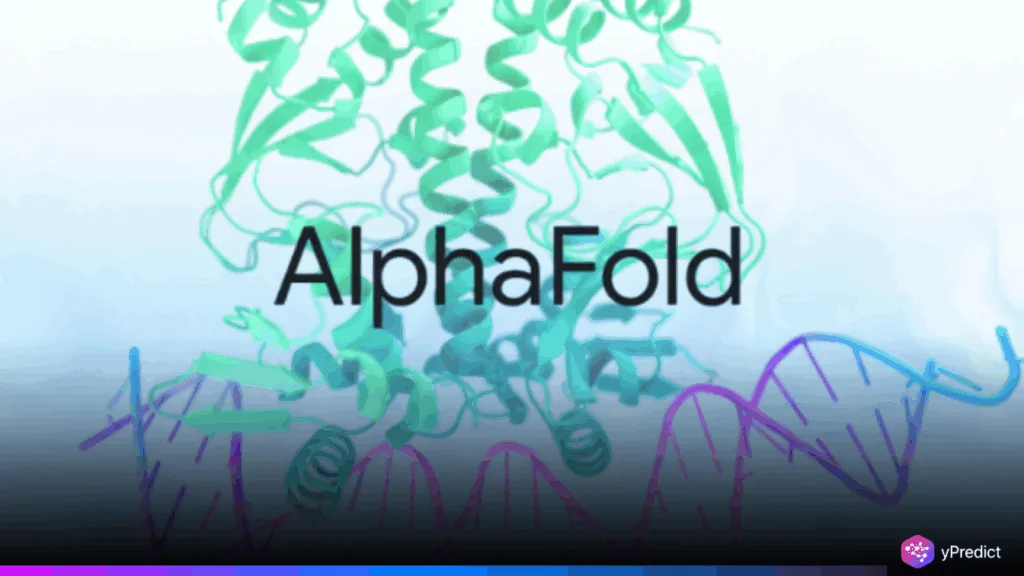
The AlphaFold was initially developed to predict the structure of proteins. But since Google has released it, it has been viewed as a science discovery tool in general. The study implies that it can be useful in revealing some underlying rules in biological systems and even beyond. Scholars suggest that such models as AlphaFold can transform science into the discovery of previously unknown principles, affecting chemistry, biology, and materials science. This is part of an increased trend where AI is not only applied to interpret data but also to make hypotheses. There is a high potential impact, but the issues of computation, validation, and generalizability can be raised.
AlphaFold as a Foundation for Extracting Scientific Knowledge
AlphaFold is best known for solving the protein folding problem, predicting 3D structures of proteins with high accuracy. But its architecture suggests broader utility. Its ability to model interactions at the molecular level can be applied to larger systems, such as cellular interactions or metabolic networks, without rewriting the core logic. This makes AlphaFold a candidate for what researchers call a “general scientific model,” a tool not confined to its initial domain.
The model’s architecture is designed to process spatial and relational data. Allows it to learn the “rules” of interactions rather than just memorizing examples. That is why even the experts speak not only about the prediction potential of AlphaFold but also call it a knowledge-extraction system. It has the ability to propose new trajectories in cellular biology. Indicate new drug targets, or even suggest modifications of existing molecules to achieve greater efficacy. By unearthing latent patterns of information presented by data.
The fact that it could generalize across one type of scientific task to another implies a move toward model training: not only to accuracy but also to flexibility. Although this does not imply that AI may substitute domain expertise, it will form a critical part of their tool. Creating hypotheses that are testable and decreasing the amount of time to discovery in the life sciences sector.
Toward General AI in Science and Its Future Potential
The key debate emerging from AlphaFold’s evolution is whether models like it can become general-purpose scientific tools. Developed originally on a single domain, the performance of AlphaFold has generated curiosity about whether similar structures could be applied to more extended architectures. Where the model describes not only proteins but also entire cells, chemical relationships, or even quantum relationships. In case such generalization is valid, AI could start augmenting fundamental scientific theories, rather than refining currently existing ones. It could, for example, identify new principles of molecular behavior or emergent rules in ecological networks. Such contributions would move AI from being a tool of acceleration to a collaborator in knowledge creation.
However, the transition from narrow to broad scientific AI faces challenges. Models must scale with high fidelity, integrate diverse data types, and maintain interpretability to ensure their outputs are trustworthy. They also must be computationally efficient; AlphaFold already demands vast computing power. Any general-purpose system would likely require even more. Still, the promise is clear. If models like AlphaFold can uncover generalized scientific principles, they could help researchers explore unknown scientific territory more efficiently, guiding experiments rather than simply reacting to them. This represents a new phase of AI: not replacing science, but reconfiguring how it’s done.
Could AI Become a Generator of Scientific Laws
The path of AlphaFold indicates that in the future, there will be a future of AI. Possibly not only the parsing of scientific data but also new laws may be found. It would redefine science and change the role of researchers to that of explorers in collaboration with AI. As the process of carrying specialized protein prediction to a more generalized understanding of science continues to move forward, the initial evidence is inflammatory. In the event that AI systems use interpretable methods and are used ethically. They might join in on the aspects of knowledge building. As base tools such as AlphaFold take the mainstream. Do you believe that at some point the field of AI will become our reliable companion in composing the next generation of scientific laws?






